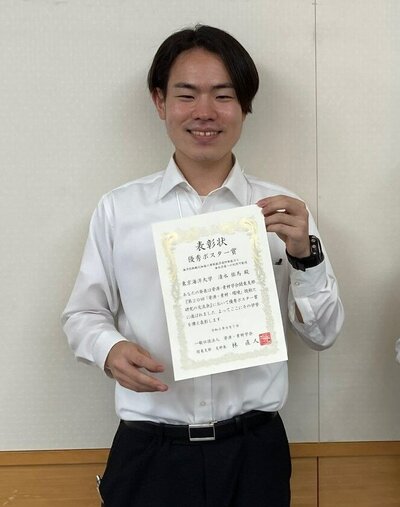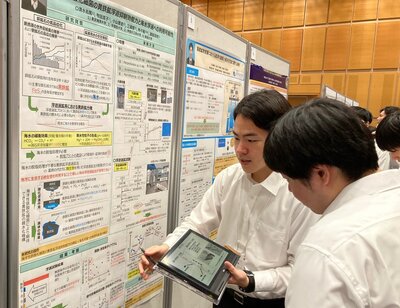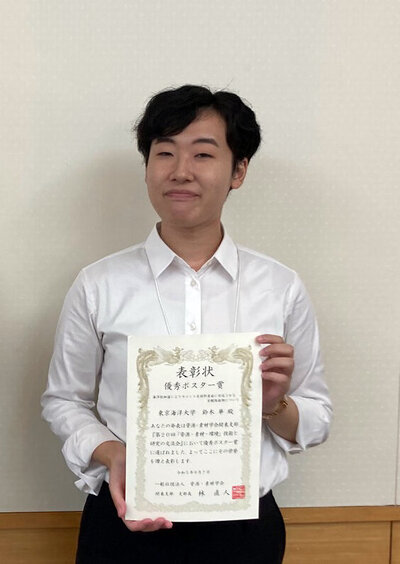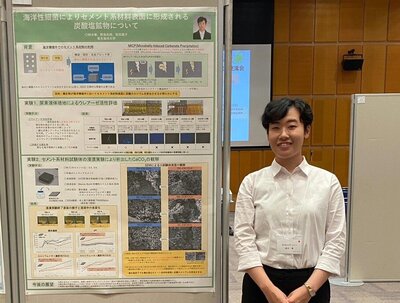Shinagawa Etchujima Campus Graduate School of Marine Science and Technology
Graduate School of Marine Science and Technology
The Graduate School of Marine Science and Technology has a doctoral course divided into a master's course and a doctoral course, and trains independent highly specialized professionals who open up cutting-edge fields.Furthermore, in collaboration with the Japan Fisheries Research and Education Agency, the Japan Agency for Marine-Earth Science and Technology, and the National Institute of Maritime, Port and Aviation Technology, we will further enhance education and research and improve the quality of graduate students. We are trying to
-

-
School of Marine Life ScienceShinagawa Campus
- Department of Marine Biological Resources
- Department of Food Production Science
- Department of Ocean Policy and Culture
-

-
School of Marine TechnologyEtchujima Campus
- Undergraduate Course of Maritime Systems Engineering
- Undergraduate Course of Marine Electronics and Mechanical Engineering
- Undergraduate Course of Logistics and Information Engineering
-

-
Faculty of Marine Resources and EnvironmentShinagawa Campus
- Department of Marine Environmental Science
- Department of Marine Resources and Energy
[Awards and Commendations] Mr. Yuma Shimizu (1st year master's student) and Ms. Hana Suzuki (2nd year master's student) received the Excellent Poster Award at the 20th "Resources/Materials/Environment" technology and research exchange meeting.
Reiwa5Years8Month7On Sunday, at the Tsukuba International Congress Center20The ``Resources/Materials/Environment'' technology and research exchange meeting (sponsored by Kanto Branch of the Society of Resources/Materials) was held.
at the exchange meeting50Yuma Shimizu, a graduate student of our university (Major in Marine Resources and Environmental Studies)12), and Ms. Hana Suzuki (XNUMXnd year master's student, Department of Marine Resources and Environment) was selected.
As a supplementary prize, I was invited to the 9 Joint Fall Meeting of the Association for Resource and Material Studies held in September.Poster- isexcellencePoster- will be posted as
Also, the winner is9I will be invited to the Mining and Materials Conference held at Ehime University in May to present my research results.
【Winner】
Yuma Shimizu (Graduate School of Marine Resources and Environmental Sciences Master's Course1Year)
Hana Suzuki (Graduate School, Department of Marine Resources and Environmental Sciences, Master's Course, 2nd year)
[Details of award-winning research]
[Yuma Shimizu]
title:Ability of marine iron-oxidizing bacteria to inhibit pyrite flotation and potential use for seawater flotation
Ore flotation is widely used as a primary separation method for ores that serve as raw materials for non-ferrous metal resources, and the development of technologies using seawater is underway with the aim of making the process more efficient and cost-effective.In this study, in order to suppress the floating of pyrite, which is an impurity contained in ore, we investigated a technology that uses iron-oxidizing bacteria that live in the ocean instead of suppressants such as lime.Several types of iron-oxidizing bacteria collected in past research cruises were mass-cultured, reacted with pyrite, and suspended in a Halmond tube.As a result, it was shown that the anti-floating effect of pyrite is closely related to the activity of iron-oxidizing bacteria.
[Hana Suzuki]
title:Carbonate minerals formed on the surface of cementitious materials by marine bacteria
In recent years, active promotion of the development of seabed resources and the effective use of the seabed within the exclusive economic zone has been advocated. It is necessary to establish a method for improving performance and maintenance.In terrestrial environments, methods of applying microbial functions to the maintenance of building materials have been investigated, but little is known about their applicability to marine environments.In this presentation, we focused on the carbonate-forming ability, which is a microbial function that is expected to be effective in the maintenance and repair of cementitious materials in previous research on land, and confirmed the carbonate-forming ability of marine bacteria. This paper introduces efforts to elucidate the effects of carbonates on cementitious materials.
<Related links>
Mining and Materials Society Kanto Branch








